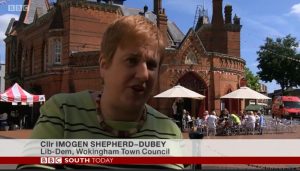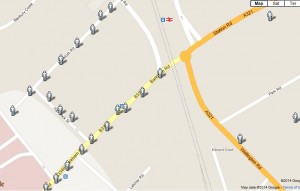Since I started as a Wokingham Town Councillor one of the things I felt was missing was an accessible War Memorial. We have a war memorial, in the town hall where few people see it. I sure it was a lovely peaceful place when the names had people who remembered them, but now we are more than 100 years on from the death of the first name, what function does this memorial serve in its current location?
accessible War Memorial. We have a war memorial, in the town hall where few people see it. I sure it was a lovely peaceful place when the names had people who remembered them, but now we are more than 100 years on from the death of the first name, what function does this memorial serve in its current location?
These War Memorials act as a reminder or a link to our past and deserve to be respected. They remind us of the sacrifices that people have made for our freedom. But, they should also pay respect to the people who have fought for those freedoms and lived to tell the tale. We have had many conflicts since the second world war, Korea, Aden, Cyprus, the Falklands, former Yugoslavia, Afganistan etc, etc. Where do we pay respect to those individuals?
So, we started a petition, which has gained some attention. With the centenary of the armistice in 2018, we have time to get something together to commemorate that date too and with Wokingham rebuilding itself in the regeneration, I can see no better time to ask for a space, where we can build something that adds to what we have.
If you’d like to see my BBC South Today video, it can be found here: https://www.youtube.com/watch?v=0XStjggct1Q
Even better, if you’d like to sign our petition and show your support, it can be found here: https://www.change.org/p/wokingham-borough-council-wokingham-public-war-memorial

